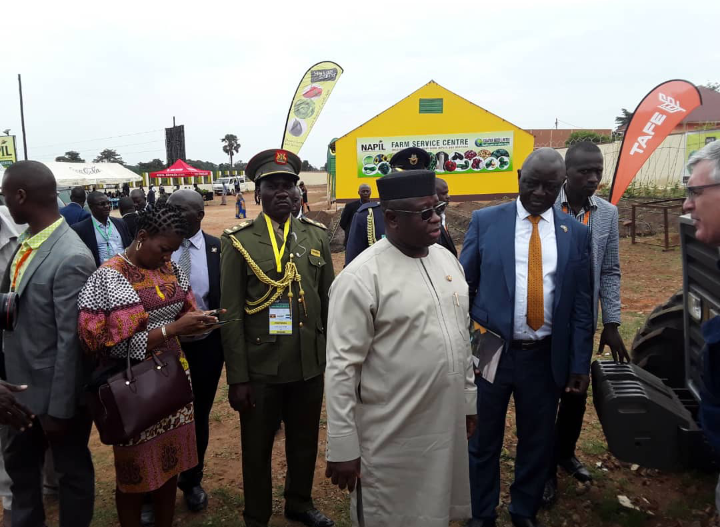BY PETER MWAYI
Arguably, conflict in Africa over political contestations is slowly reducing and being gradually replaced by conflict over resources such as land, water and food amongst others. The war in Sudan in North Africa that lasted more than 50 years and eventually saw a split of the country to form South Sudan was triggered by an ethnic competition between Dinka Malual and Reziegat Arabs over natural resources (water and grazing land) at Kiir/ Bahr Arab a small river located between the communities.
In his book titled Politics of Ethnic Discrimination in Sudan: A Justification for the secession of South Sudan, the current Investment Minister in the world’s youngest nation, Dr Dhieu Mathok Diing Wol, argues that the ethnic tensions for survival between the Diinka and the Riezegat were exploited by Sudanese elites who turned them into political tensions leading to severance of relations between the communities in the South and the North of the country. This breakdown developed into severe war eventually leading to partition of the country into two.
The Sudan-South Sudan crisis remains one of the longest lasting conflicts and perhaps has left the deepest wounds on the continent, yet even as guns go silent, a deeper and more severe crisis looms. Hunger on the African continent is increasing at an alarming rate. This increase has been exacerbated by the global COVID-19 pandemic, which has coupled with conflict, drought, economic woes, and extreme weather to undo even the little progress that had been.
A report by the international relief NGO World Vision indicates that as of 2019, 234 million sub-Saharan Africans were chronically undernourished, more than in any other region. In the whole of Africa nearly 20% of the population were experiencing hunger.
The report further states that conditions are deteriorating across East Africa, where 7 million people are at risk of starvation with another 33.8 million facing acute food insecurity and at least 12.8 million children in the region are acutely malnourished.
Without adequate government support systems to assist in many countries, Africans, who have struggled with extreme poverty for decades are left in despair, begging the question, what can governments do to help their people.
Sierra Leone’s President Julius Maada Bio visited Uganda in July 2019, the purpose of the visit in his description was to study how the country which he called a progressive democracy, has managed to overcome the challenges of democracy since independence. Aware that Uganda has itself undergone severe conflict and yet remains on a steady trajectory towards progress for its people, Maada Bio was on a fact-finding mission to establish how the government has used the army in several programmes including building its economy and infrastructure. In Kampala, Maada Bio lauded President Yoweri Museveni’s method of deploying soldiers in the agriculture sector.
“The military should ensure discipline and expertise instead of preparing for war. Let us fight food insecurity because it does not only bring peace but also foreign exchange, which the country requires,” President Bio said.
The retired army general who took over the leadership of Sierra Leone in 2018, at a time of civil instability, stated that African governments should emulate Uganda and modernise agriculture by deploying their armies to ensure professionalism.

Uganda in 2013 launched the Operation Wealth Creation (OWC) Programme as an intervention to facilitate national socio-economic transformation. The programme focuses on empowering households to have an income. The country’s economy is grounded in agricultural activity yet 68% of Ugandans remain subsistence farmers. The vision of the government is to transform the subsistence farmers into commercial farmers.
Officers of the Ugandan army, the Uganda Peoples Defence Forces (UPDF) are deployed to mobilise and train Ugandans involved in farming and the masses at large to adapt to new farming methods. The programme encourages a total change in mind set to enable them to achieve positive economic social transformation. Since 2015, officers have been deployed in all the 112 districts, constituencies, the capital city and municipalities.
The officers mobilise, educate and then distribute inputs including seeds, seedlings, livestock, poultry, value addition, mechanization equipment and technologies to the population.
William Ruto, Deputy President of Kenya which is East Africa’s largest economy, warmly praised OWC on a recent visit to Kampala in July. According to Ruto, Kenyans are in awe of the programme because it has improved farmers’ productivity and crop production leading to a surplus production for maize, milk, fruits and other agricultural products in the country.
“I have been a keen follower of OWC. The people at bottom of the pyramid have been provided with grants and inputs to improve productivity and this has contributed to surplus. You have reduced the cost of living here in Uganda. That is something we are keen to look at. We are keen to build from the bottom up,” Ruto said at a ceremony, adding; “Your brothers and sisters in Kenya are proud of what is going on.”
Uganda’s model, of deploying soldiers in development programmes is slowly attracting the interest of other leaders on the continent. This may be a creative way of engaging the trained soldiers in activities that will keep their minds from thinking war and at the same time lead to significant developmental progress.